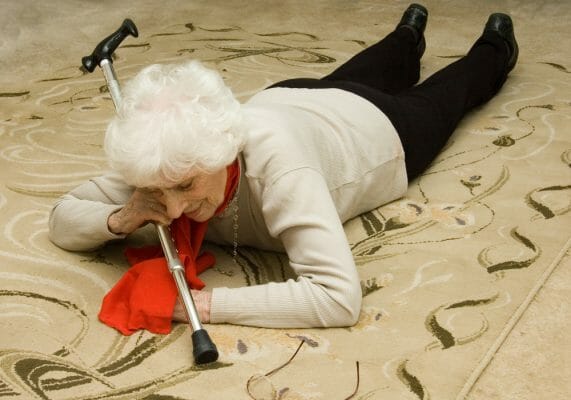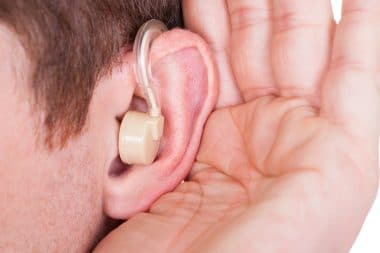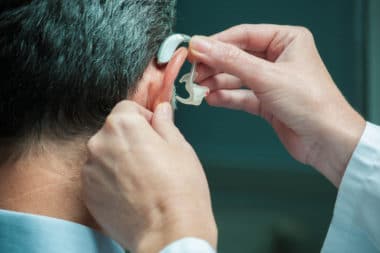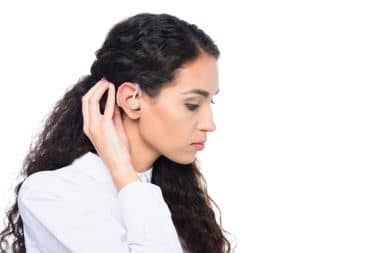Let’s not forget our ears when it comes to cleanliness. Your ear contains lots of crevices that can trap dirt and sweat. Keeping our ears free of excessive wax, dirt and other foreign substances should be a regular part of your personal hygiene regime.
Your ear is divided into three main areas:Â the inner ear, the middle ear and the outer ear.
Cleaning the outer ear is where you want to start. Make sure to wash this area with your washcloth every time you wash your face. And don’t neglect behind your ear.  If you have children you know the how the dirt can collect in this area.
Be careful when cleaning inside your ear.  If you have a problem with wax in your ear read below to learn the best ways for dealing with that problem.  Tampering with the inner ear can cause damage to your hearing. Many experts do not recommend the use of Q-tips or cotton swabs for cleaning the ear. You want to avoid harming the eardrum by cleaning to deeply into the ear with an object.
The Right Kind of Ear Wax
Ear wax protects us from things that may sneak into our inner ear canal, so a normal amount of wax is helpful for our ear’s health. Too much of anything is a bad thing, though, and excessive ear wax can decrease our hearing.
When you neglect this issue, a GP or ear specialist will need to remove the hardened ear wax. If the unnecessary ear wax is still soft, removing it is as easy as applying a couple of drops of ear wax removal solution and letting it soak the ear canal for a minute or two before washing it out.
The Wrong Kind of Ear Wax
As we all know, introducing foreign objects into the inner ear is the worst thing you can do to your hearing. Soap and warm water is the only way to drain the ear canal of any excess wax. A manageable way to make sure your ears are always clean and free of excess wax is to wash them in the shower. Hold some water in your hand and place your ear on it, then tilt your head to introduce the water into your ear, and let it sit for 20 seconds in each ear before draining.
Using Q-tips will cause damage or even push the wax far into the ear canal, which can cause infections and blockages. If you ever use a cotton swab and you see any blood or fluid dripping from your ear, see a doctor immediately.
Over the counter ear drops or a few drops of warm olive oil, help soften the wax and it will come out on its own. If after using these drops the wax is still lodged in your ear, a GP may have to syringe it out.
Don’t Lose Your Hearing
Listening to loud music through earphones is not the only cause of hearing loss. Hearing loss can also occur from an injury, inflammation, an infection, or if there’s excessive hardened ear wax built up.
An untreated ear infection can lead to a ruptured eardrum. Â The good news is, your eardrum will heal. Â The bad news is you lose all hearing in that ear until that eardrum heals and you may end up with some hearing loss even after it heals.
If you work in an environment where you are constantly around loud noise (music concerts, construction, airport) you need to wear ear protection. Â Constant loud noise can cause hearing loss.
Any type of blockage in the ear canal affects your ability to hear sounds. This can be from wax, inflammation or an infection.
Warning Signs
If you notice a ringing in your ear, are having trouble hearing, have an earache or are having trouble with your balance, these are all signs that something may not be right in your ear. Â Go to the doctor for diagnosis. Â There are treatments for infections, inflammation, or wax cleaning that will have you back to normal in no time. Â Left untreated small problems can turn into irreversible issues.
Itchy ears? Not good! Neglecting this issue can lead to other severe health concerns. #HealthStatus
Key Points
- 1Cotton swabs will have an adverse effect, and although it appears they clean wax correctly, in the end, you're only pushing it further into your ear.
- 2Only an ear specialist can diagnose what the root of the problem is, so don't think you can take care of an infection on your own. Remember that infections left untreated can affect your hearing and your balance.
- 3Unhealthy ears can lead to severe problems with one's balance. If the fluid in your ears is infected, you may experience dizziness or vertigo in the mornings and whenever standing up too quickly.
Home Made Remedies
To avoid excess build up of ear wax, use tea tree oil or olive oil to anoint the ear canal and expedite cleaning. Keeping your ears moist reduces dryness and itching, symptoms that could ultimately bring about allergic conditions like psoriasis and eczema.
This method will not always yield results, so it’s important not to take your self-diagnosis too seriously. It’s always necessary to see a medical professional that can provide better treatment options.
In fact, it’s a good idea to see a GP at least once per year for an evaluation of your ears’ health. Ear specialists provide hearing tests and can perform an ear canal irrigation in severe cases.
The simplest of things like itchy ears can cause other health concerns that are much more dangerous. Therefore, don’t let your irritation prompt you to harm your ear even further. See a doctor immediately.
Cause of Itchy Ears
Lack of Moisture: Lacking natural lubrication of your ear’s skin leads to your ears becoming itchy. Excessive cleaning of the ear dries out the natural oils found in your ear, and only replenishing the moisture can fix this issue.
Hearing Aids: Hearing aids can also cause skin irritation in the inner ear if not checked from time to time. Monitoring the hearing aid is imperative, so you don’t keep trapped sweat or water in the ear canal.
Infections: A sinus infection can affect your ears. If your ears are itchy due to a sinus infection an antihistamine may help. Your health care professional should examine your ears when diagnosing a sinus infection.
Keep Your Ears Itch Free
Wash: Maintaining your ears dry, clean, and naturally moisturized is the only way to make sure they’re healthy and free of any irritation. After a shower, pat your ears in a gentle fashion to reduce risks of infection, itchiness, and to stave off any bacteria.
Moisturize: Skin that dries easily needs a specific homemade remedy to relieve itchiness and infections. Adding a couple of garlic cloves to olive oil and crushing them to release the natural oils is the best way to keep your ears itch free.
Heat the oils in low flame until boiling, then let it cool and a few drops to the inner ear to soothe irritation. Mixing equal parts of distilled white vinegar with rubbing alcohol will also relieve itchiness. Two to three drops in the ear will do the job.
Wash Bedding: Minimizing risk of itchiness can be done by throwing your pillowcase in the washer as much as possible.
Test for Allergies: To know if you’re allergic to feather pillows, try an artificial one to see if the fibers have been causing your itchiness.
Take Medication: If being treated for an ear infection, take your medicine as prescribed.
What is Glue Ear?
Middle ear effusion is the buildup of sticky and thick fluid in the ear, better known as ear glue. This condition blocks the middle ear and can affect your hearing or balance.
Glue ear is a painless condition and affects young children more than others. Your son’s or daughter’s behavior and progress in school can be affected if not treated promptly and adequately.
This common condition develops after an ear infection, but the cause is often unknown. Glue ear prevents the small bones in the middle ear from moving regularly and subsequently brings about hearing troubles.
If your child displays signs of ear glue, take them to an ear specialist as soon as possible to receive antibiotics. Since it’s a painless condition, your child won’t have any earaches, which is why regular checkups are so important.
Overall Hygiene
Do not overlook ear care during your daily hygienic routine, and remember only to clean the outer ear. Again, refrain from using any cotton swab-like instrument to clean out the ear wax.
Whatever goes inside or outside your ears, such as earrings or hearing aids, should be cleaned on a daily basis to avoid any germs entering your ear. Avoid sleeping with piercings and remove all hair products like gel before bed.
Gels can dry buildup in and around your ear and can irritate the skin. Sleeping with a product in your hair not only dries your hair, but it also dries the skin surrounding your ears.
Now that you know how to keep your ears happy and healthy do not neglect to implement the methods discussed above. Forgetting of your ear hygiene for even just a few days could lead to an irreversible loss of hearing. You brush your teeth daily, so why neglect ear care?







